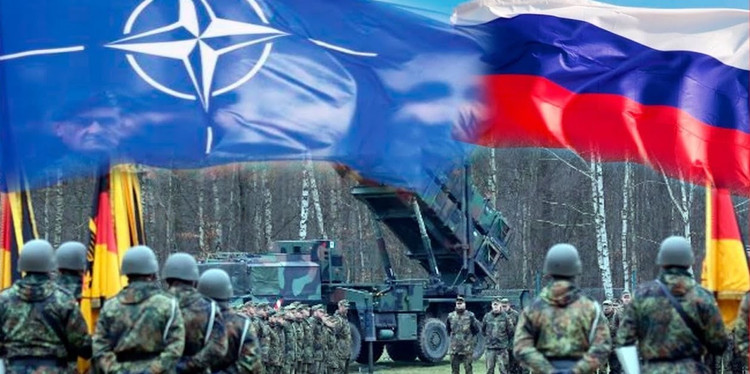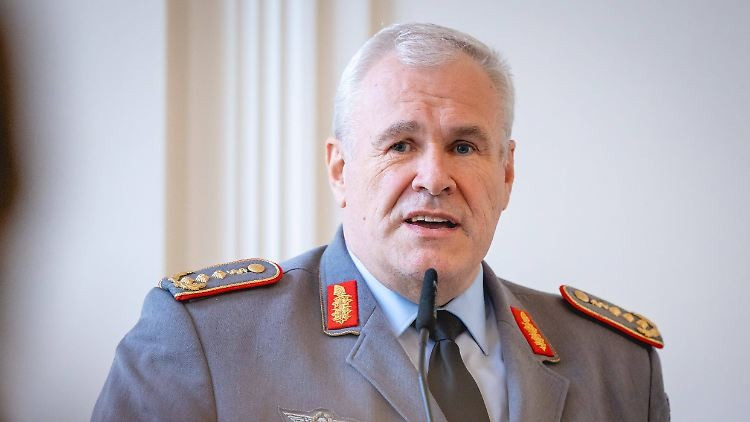According to Brigadier General Ralf Hoffmann - head of the German military's medical service (Bundeswehr), the German armed forces are expected to suffer 1,000 wounded soldiers per day in the event of a conflict with Russia.
To prepare for this scenario, Mr. Hoffmann said that the German army is preparing plans to transport wounded soldiers by train and bus, and at the same time asking the civilian health system to reserve about 15,000 hospital beds to receive soldiers.
“The actual number we are talking about is about 1,000 wounded per day,” General Hoffmann said on September 22.

Experts predict that up to 1,000 Germans would be injured every day in direct conflict scenarios.
Berlin has repeatedly warned of the risk of direct conflict between NATO and Russia since the outbreak of the Ukraine war in 2022. Bundeswehr Chief of Staff General Carsten Breuer once stressed that Germany must be ready to confront Russia before 2029.
Meanwhile, Russia has repeatedly denied allegations that it plans to attack NATO countries. Kremlin spokesman Dmitry Peskov even warned that “Germany is becoming dangerous again” after Defense Minister Boris Pistorius said that German soldiers were ready to kill Russian soldiers if confrontation broke out.
German Chancellor Friedrich Merz has repeatedly made strong statements criticizing Russia and pledged to turn the Bundeswehr into “the strongest regular army in Europe.” Mr. Merz also urged the West to increase economic pressure to “exhaust Russia.”

Brigadier General Ralf Hoffmann - Head of the German military medical service.
Since 2022, Berlin has sharply increased defense spending, becoming the second-largest arms supplier to Kiev after Washington. Leopard tanks delivered by Germany were used by Ukraine in the offensive against Russia's Kursk province.
However, domestically, German Chancellor Friedrich Merz's political reputation is at a record low.
A survey by the INSA Institute published in the Bild newspaper showed that 62% of German voters were dissatisfied with the Chancellor's management, while only 26% expressed support. The CDU-SPD coalition government also suffered an unprecedented low approval rating.
Germans are most concerned about rising living costs, the refugee crisis, high taxes and possible welfare cuts. But Mr Merz insists the austerity measures are necessary to revive the economy and maintain support for Ukraine.
The far-right AfD party - which strongly opposes spending money on Kiev - is taking advantage of this wave of discontent to increase its influence, becoming the second-largest political force in the Federal Parliament and leading in many polls.
Source: https://khoahocdoisong.vn/duc-du-bao-ket-qua-nghiet-nga-khi-xung-dot-truc-dien-voi-nga-post2149055564.html


![[Photo] Unique Phu Gia horse hat weaving craft](https://vphoto.vietnam.vn/thumb/1200x675/vietnam/resource/IMAGE/2025/10/10/1760084018320_ndo_br_01-jpg.webp)


![[Photo] Standing member of the Secretariat Tran Cam Tu works with the Standing Committee of the Party Committee of the Ministry of Health](https://vphoto.vietnam.vn/thumb/1200x675/vietnam/resource/IMAGE/2025/10/10/1760079818773_image-4-6972-jpg.webp)

![[Photo] "Exposing letters" in the flood center of Lang Son](https://vphoto.vietnam.vn/thumb/1200x675/vietnam/resource/IMAGE/2025/10/10/1760080117518_ndo_br_z7101324112737-07cd4d1c01801a8ccf4ae0cbaf31c4a3-507-jpg.webp)



























































































Comment (0)